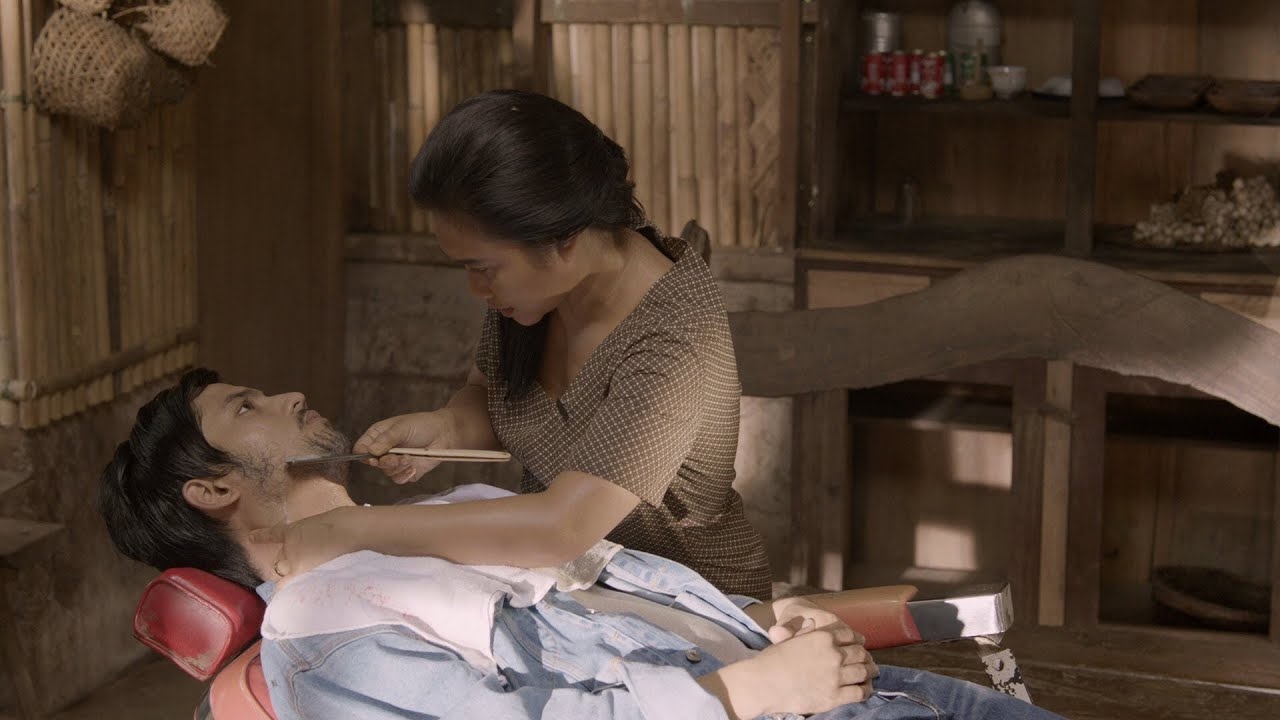REVIEW: Decade-old ‘Barber’s Tales’ hits repressions on being a woman and being a Filipino
Netflix dusted off a decade-old gem in Barber’s Tales (Mga Kwentong Barbero), a period drama revolving around a female barber (Eugene Domingo) in a small town that generally looks down on women. Set during the martial law regime, Jun Lana’s magnum opus needed to be experienced by the Filipino streaming generation, not only those who missed its theatrical run in 2014 but also those who tend to be easily swayed by propaganda and historical revisionism.
While humor is in the DNA of Lana’s filmography, Barber’s Tales’ quips do not distract the audience from the overall tone of political upheaval and the feeling of uneasiness surrounding the small town. Despite being miles away from Metro Manila, it was only a matter of time before the storm of violence and mistrust made landfall on Marilou’s barber shop. There is a pretend sense of normalcy in the setting that Lana successfully achieved with subtlety, a far cry from his usual over-the-top films.
Barber’s Tales is a story of finding one’s identity amid a double whammy of repressions—first, as someone who carries XX chromosomes and being blamed for any lacking men feel; and second, as a citizen being caught in a web of lies relegated to casual self-righteous banters and rumormongering in a barber shop. It takes the viewers to Marilou’s journey to finding her sense of identity after spending most of her adult life in the shadows of her husband, even after his sudden demise.
Domingo’s Marilou is parallel to Vilma Santos’s Amanda Bartolome in Dekada ‘70, with the former focusing on how a rural woman reacted to the injustices spilling over to her small town. It also brings to light how the machismo culture magnifies the larger socio-political struggles of Filipinos in the 70s. Women being subservient to the whims of men are not only personal crises here, but reflections of the larger problem of misogyny in the country.

In the end, it is the women, the silent minority of the time, who find strength in each other and turn the tide by leveraging the gender roles that society boxed them into. Lana masterfully crafts a political thriller that not only gets you engaged but also leaves you with a lot of things to ponder as the credits roll.
Lana is no stranger to period films, having co-written GMA Films’ José Rizal with Peter Ong Lim and National Artist for Film and Broadcast Arts Ricky Lee. One can notice how it is backed with research reflecting pro-government media and a certain fake ambush during that tumultuous period. His other recent work, Big Night!, which won Best Picture and Best Screenplay at the 2021 Metro Manila Film Festival is also a social commentary on the Duterte administration’s war on drugs.
Meanwhile, Domingo also shows she is more than a comedian and can take on serious dramatic roles. For this film, she won Best Actress at the 2013 Tokyo International Film Festival. In retrospect, it is a missed opportunity that she has not been cast for a similar role after Barber’s Tales and only appeared in comedies such as the first Filipino Amazon Original Film Ten Little Mistresses and the Metro Manila Film Festival 2023 entry Becky and Badette, both helmed by Lana. While making people laugh is also a talent, Domingo has shown she has the acting range for any kind of genre.
Barber’s Tales (Mga Kwentong Barbero) could not come at a better time as movies are now being weaponized to distort the truth. Play it. Pause for some reflection. Get back to it. Watch it over again. Invite your parents to watch it with you. Recommend this to a friend vulnerable to populism and fake news. You would be doing this country and the local film industry a favor.
Barber’s Tales (Mga Kwentong Barbero) is streaming on Netflix Philippines. Watch the trailer below.


